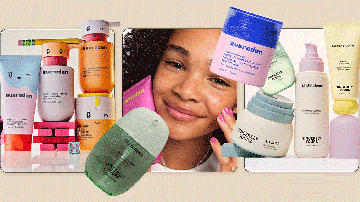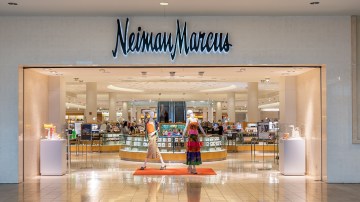A year ago, the French sportswear brand Salomon had only one store in the U.S., a flagship it had newly opened in New York City’s SoHo neighborhood. Now, it has five American stores with more planned for next year.
The latest is in Williamsburg, Brooklyn, building on the brand’s presence in its best-performing American city and marking its fourth opening this year. At the store opening on November 19, Erin Cooper, senior marketing manager for performance and sportstyle at Salomon North America, told Glossy that the brand will likely double its U.S. stores next year to around 10.
“We really are in the infancy stage for our retail presence in North America,” Cooper said. “The consumer demand had been bubbling in the U.S. for a while, and it just felt like the right moment to finally start to expand the footprint here. We have a wholesale presence in the U.S., and that acts as a great gateway, but at a certain point, it’s not enough, and you’re competing with other brands. Opening our own stores lets us own the narrative.”
Cooper said Salomon isn’t backing off of wholesale, but it will continue to open its own stores to complement its wholesale retail business in the U.S. It sells in both general department stores like Nordstrom and specialty running and sports stores like Running Warehouse. While Salomon is known for its performance equipment, its popular X-T6 sneaker has broken through into lifestyle and fashion world and it has collaborated with big fashion brands like Maison Margiela.
The stores themselves are varied. Cooper said the team operates them much like luxury brand stores, trying to make each store unique to the local environment and special in its own way while maintaining a consistent brand identity.
For example, both New York stores put more emphasis on the style aspect of the brand. The Williamsburg store’s clean white walls and hardwood floors would seamlessly work within any high-fashion New York City boutique. But the Salomon store in Bucktown, Chicago, which opened in August, has far more emphasis on the performance and sport sides of the business.
Cooper estimated that the New York stores are 90% focused on lifestyle product, while the Chicago store is evenly split between fashion and performance product. The difference extends beyond the product. The Chicago store hosts multiple run clubs, while the New York stores are more likely to host DJ sets and mixers.
Salomon’s parent company, Amer Sports, reported successful earnings on November 18, with third-quarter revenue at $4.47 billion, up 25% from a year prior. Salomon has played a key part in the group’s successes. While Amer Sports doesn’t split up its revenue by brand, the Outdoor Performance category, which includes Salomon and its sister brand Arc’teryx, represents the bulk of the company’s revenue, growing 36% in the quarter to $724 million.
“Salomon footwear continues to add a strong second leg of profitable growth to Arc’teryx’s already exceptional trajectory, significantly elevating the financial profile and long-term value creation potential of the Amer Sports portfolio,” said Amer Sports CFO Andrew Page, in the company’s earnings press release.
For Cooper, the holiday season represents a welcome break from store openings until the sprint continues next year. While the exact locations of new Salomon stores haven’t been announced, Cooper pointed to a few markets that the brand is interested in exploring.
“Los Angeles is our next epicenter target where we already have high customer awareness and affinity but need more of a physical presence,” Cooper said. “Miami is on the horizon, as well. We’re looking at places where we have high search volume and places where we have strong wholesale partners — anywhere consumer demand has been building.”




